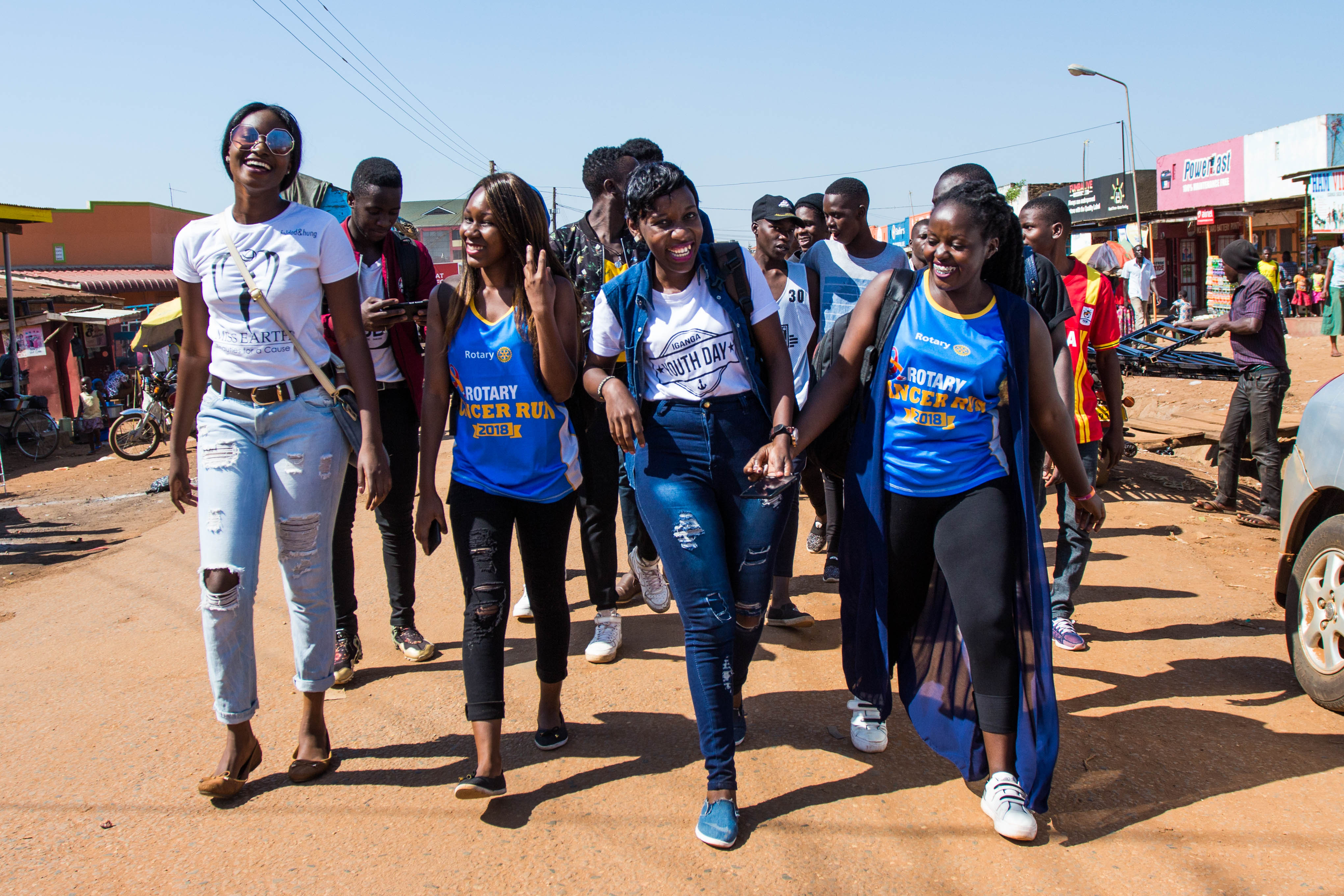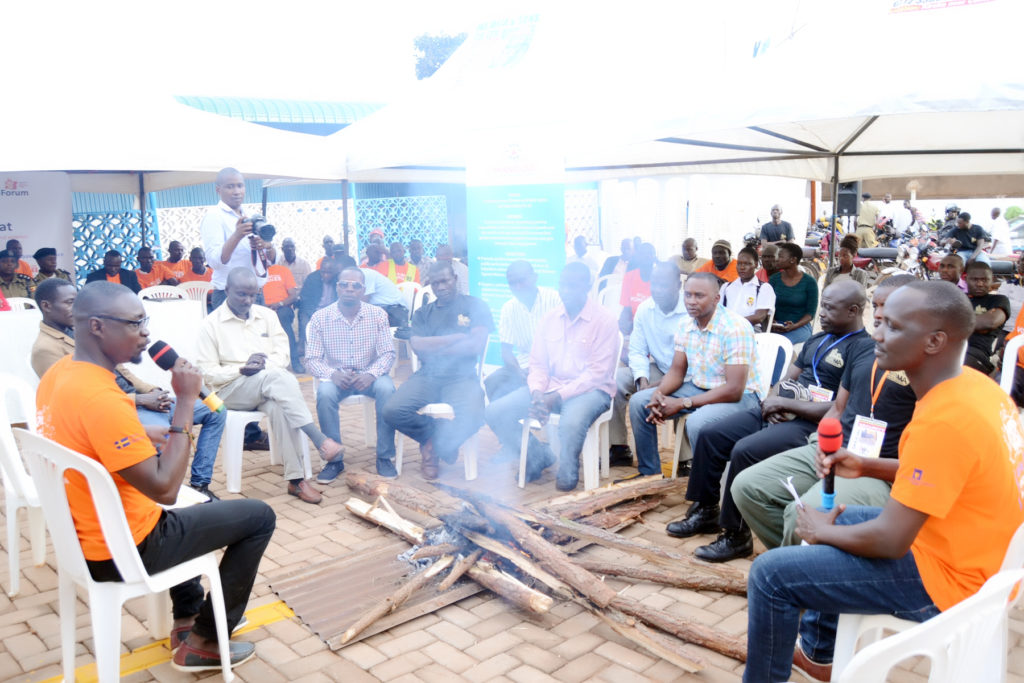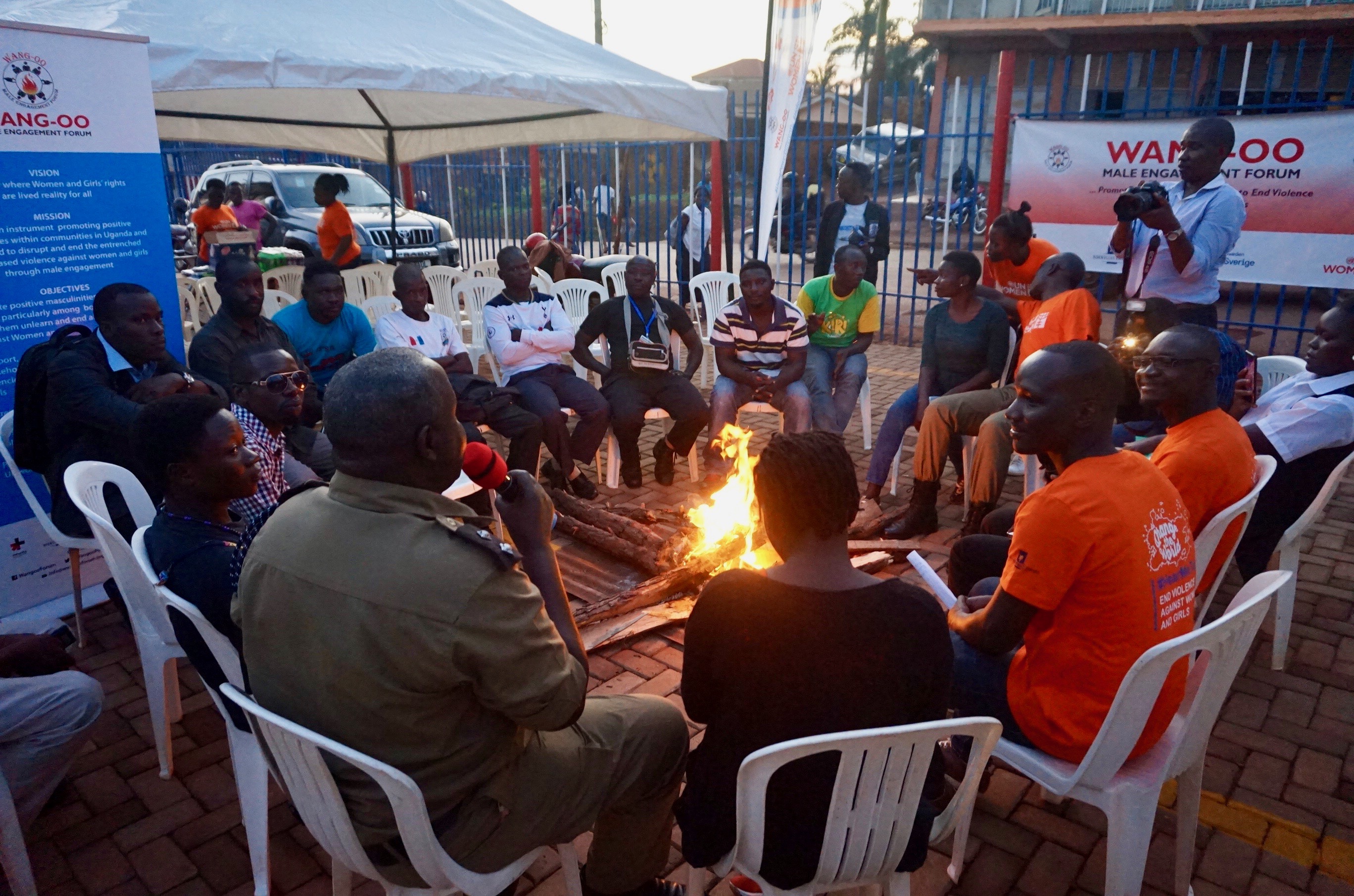
“Everyone & most organizations are concerned about the victims or abused (mainly women and girls), with little and/ or NO ATTENTION to the PRINCIPAL PERPETRATOR, MEN”. So we’re promoting #positivemasculinities among men and boys to help them unlearn and end #ViolenceAgainstWomenAndGirls in #Uganda.
Vision and Mission
Photo Credit: Hangout Foundation

Vision
Wang-oo’s vision is a world where Women and Girls’ Rights are lived reality for ALL.
Mission
Wang-oo Forum works in Uganda to be an instrument promoting positive/transformative masculinities in communities to end entrenched gender-based violence through male engagement.
“We believe that by working together with men and boys, Wang-oo will spread awareness and spark action on the responsibilities that men and boys have in unlearning and eliminating all forms of discrimination & violence against women and girls”
Organisational Philosophy
The name “Wang-oo” is a Luo word, which means “born fire”. Thus, in the context of masculinities and violence against women and girls in our societies, “Wang-oo” (the gathering around it-fireside) symbolizes and reflects the place where “men and women are made”. In other words, “Wang-oo has been the foundation for the construction of masculinities and femininities, so that’s the environment where patriarchy is enforced: boys and girls learn and exhibit the do’s and don’ts and real men and women are also made.
These constructions, therefore, causes gender inequality and maintains VAWG in our societies. Accordingly, the appropriate avenue and strategy to deconstruct such ideologies are to go back to the fireside (Wang-oo), re-engage boys and men, empower them to unlearn the “negative” masculinities and exhibit positive masculinities- values of love, respect and equality for all. Consequently, being Change Agents in their communities and support to end violence against women and girls.
“The appropriate avenue and strategy to deconstruct such ideologies are to go back to the fireside (Wang-oo), re-engage boys and men, empower them to unlearn the “negative” masculinities and exhibit positive masculinities- values of love, respect and equality for all”


Justification for Wang-oo Forum
As prominent in other countries across the globe, Gender Based Violence (GBV) in Uganda also remains a national concern. GBV is highlighted in the Second National Development Plan (NDP II – 2015/16-2019/20) as a critical human right, public health and economic concern with 56 percent of women citing having experienced physical violence by the age of 15 years while 28 percent women aged 15-49 citing having ever experienced sexual violence compared to 9 percent of men in the same age group.
One recent, important and worrying trend of violence against women in Uganda is the incessant killing of 23 women between May and August 2017, in Nansana and Entebbe (suburbs of Kampala) in Uganda, which are widely believed to be targeted to female gender and executed by the male criminals.
Most importantly, despite the exant and progressive growth of various GBV elimination oriented organizations in Uganda, there is limited / no engagement of men who are the principal perpetrators in the fight against the elimination of violence against women and girls. Accordingly, Wang-oo’s work serves to provide a comprehensive widow that supports, but fill the grim lacuna: limited/no engagement with males in the work of various organizations working towards the elimination of violence against women and girls.
“We use a mix of approaches to promote positive masculinity– values of love, respect and equality for all among men and boys”
Our Spectrum of Change
Wang-oo employs the ‘spectrum of change’ model, drawing on a broad range of social change strategies that include:
-
Organising small community meetings and workshops, engagement and dialogue with men and boys in the most convenient places and time.
-
Utilizing the already existing men and boys groups such as Men’s Fellowships, SACCOs, Evenings gatherings, staff rooms, bus parks, markets, factories, village meetings, mosques, after mass gatherings, etc.
-
Registrations of members, signing the pledge or commitment forms, the election of group monitors and coordinators to keep track of members.
-
Identifying and recognizing male champions, role models and best practices.
-
Creating a network of champions and forming social networks.
-
Participating in public GBV campaigns, processions, dialogue, media campaigns, community sensitization,
-
Using drama, songs, poems, and testimonies as a tool to campaign against GBV.
